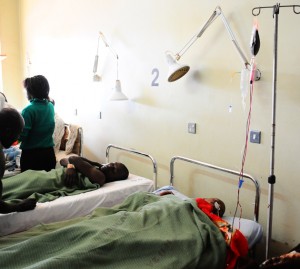By Umaru Kashaka
The Uganda Parliamentary Women’s Association (UWOPA) has written to Speaker Rebecca Kadaga to help fix an appointment with President Yoweri Museveni over the alarming maternal mortality rate in Uganda and the appalling state of private health services.
MPs and the civil society organizations observed that their efforts in lobbying and advocating for women rights in Uganda are producing diminishing returns due to lack of political will from the Government.
“We want the government to sit up and take notes because we are tired of lamenting about maternal deaths in this country.
We have requested the Speaker to fix an appointment for us to meet the President over the stagnation and non-progress in maternal issues despite our continued efforts in complaining about it. We want the President to provide the stewardship that is now lacking,” Mityana Woman MP, Sylvia Namabidde told a news conference at Parliament.
UWOPA chairperson, Betty Amongi, stressed that the meeting with the President would also solve the continued non-supervision of private health facilities by the government which has resulted into unprofessionalism of health workers in handling expectant mothers.
“We want to share with the President on the issue of inadequate human resource in both private and public facilities in terms of qualified and experienced doctors and mid-wives, and yet we allocated a large sum of money to recruit more health workers,” Amongi added.
They appealed to private health facilities to provide the necessary cooperation to an ad-hoc committee that was set up by Parliament on Wednesday to probe them, following the sudden death of the 36-year-old coordinator of the Uganda Parliamentary Forum for Children, Remmie Wamala, at IHK where she had gone to deliver last Friday.
According to Namutumba Woman MP, Florence Mutyabule, the post-mortem report indicated that Wamala died of excessive bleeding and a ruptured uterus. She said her child (a son) survived, but was on oxygen.
FIDA-Uganda board member, Berna Bakkidde said in spite of Article 33(3) of the constitution which clearly requires the government to protect women and their rights taking into account their unique status and natural maternal functions in society, the rate of maternal deaths per 100,000 live births has increased from 435 from 2005 to 438 in 2011, according to the Uganda Demographic Health Survey 2011/2012.
“We are concerned about the rising number of maternal deaths in Uganda as a result of the high level of negligence by health workers in private and public health facilities which pose a danger to the lives of women in Uganda,” Bakkidde said.
She added: “Remmie’s death is representative of so many women who have died in child birth, as a result of preventable medical complications.”
Bakkidde called upon the ministry of health to borrow a leaf from Parliament and also institute an investigation into the high rate of maternal deaths in private health facilities, saying they have failed to provide timely and appropriate medical care which has escalated the number of maternal deaths.
“I still believe that the passing on of Remmie and many other women who have died under these circumstances could have been avoided in private facilities. Our colleague by going to the International Hospital Kampala (IHK) knew what she was doing but was unfortunately let down by the system,” she noted sadly.
The Uganda Women’s Network communication officer, Sandra Kamuhimbo, urged government to increase resource allocation to the health sector and honor its commitment to invest 15% of its national budget on health as per the Abuja Declaration.
“We feel no woman should die while bringing a life into the world. However, in Uganda today pregnant women look at death in the face every time they go into labour. The health ministry should take up their role in regularizing and supervising these private health facilities to ensure efficient service delivery of our mothers and sisters,” she implored.
Source: http://www.newvision.co.ug/news/644729-soaring-maternal-deaths-mp-seek-museveni-s-attention.html



